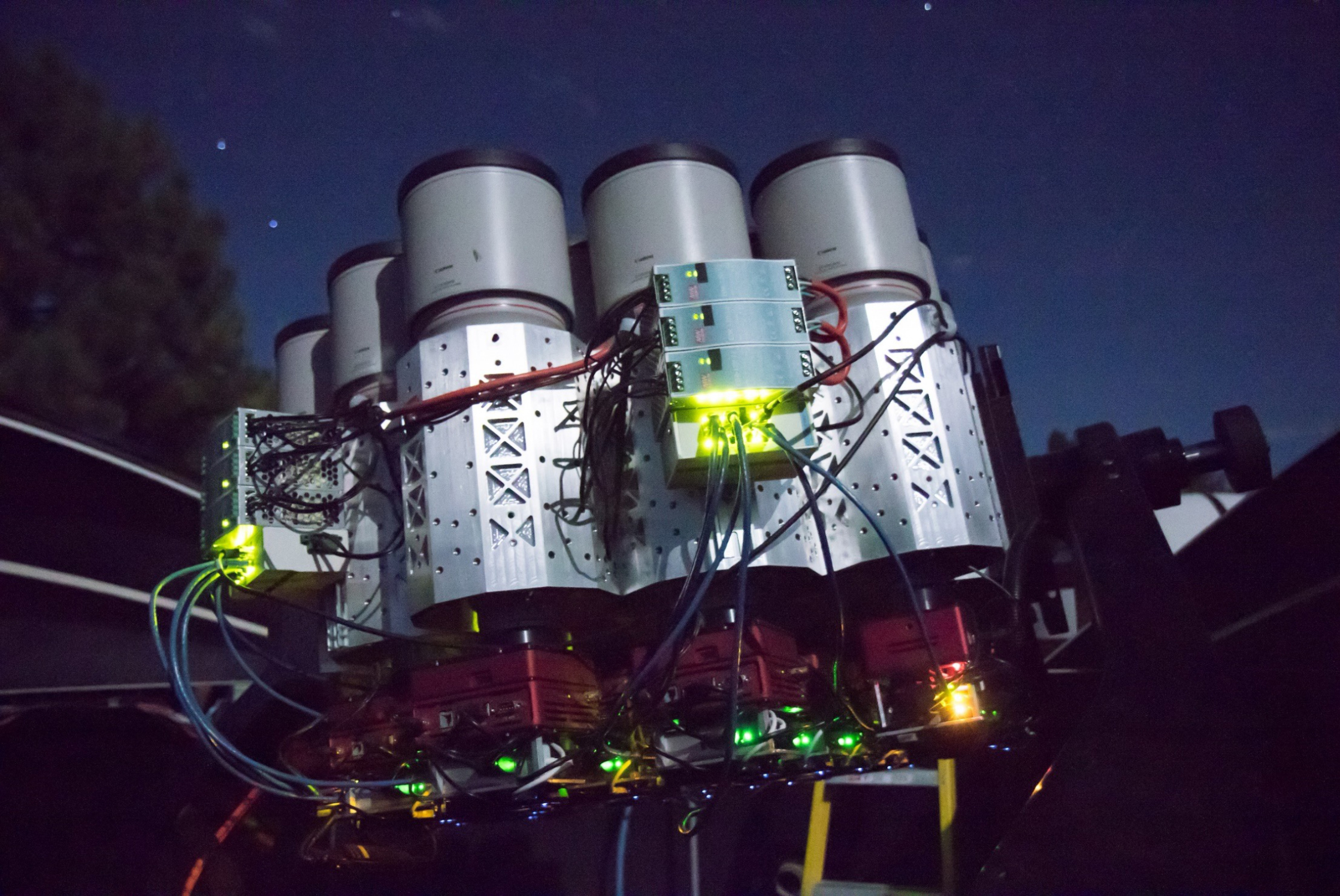Canon supplies lenses for extragalactic photo array
Canon is supplying 120 telephoto lenses to expand the Dragonfly extragalactic photo array

Canon will be providing technical backing to Project Dragonfly, a development undertaken by international research teams based at Yale and Toronto Universities. The manufacturer will be supplying 120 telephoto lenses to bolster the project.
Telescopes within the array will each be equipped with multiple Canon super-telephoto single lenses, namely the Canon EF 400mm f/2.8L IS II USM lens, capable of capturing the faintest of galaxies that had previously escaped detection from the largest of conventional telescopes.
• Read More: Best lenses for astrophotography
The array is classified as a significantly important survey telescope in the process of finding faint and diffused objects in the night sky. The aim is to produce images that deepen our understanding of galaxy formation, and provide key insights into theories surrounding the nature of dark matter. Isn't science great?
Project Dragonfly was commissioned in 2013 and is housed at the New Mexico Skies observatory. Its mission is to study the low surface brightness areas of the universe, to elucidate the nature of dark matter while attempting to employ the concept of distributed telescopes working as a singular mechanism.
Supporting this research, Canon supplied 40 lenses to the project in 2015, later expanding the array to 48 lenses, paired with 24 telescopes bundled together on 2 separate mounts, yielding significant results in the field of extragalactic astronomy. The project has since been able to establish identification of a galaxy that lacks dark matter, referred to as NGC 1052-DF2. The lenses provided contained anti-reflective coatings that are designed to mitigate the effects of light scattering.
This latest supply from Canon brings the total number of provided lenses to 168, enabling the array to exploit light-gathering capabilities equivalent to that of a 1.8 meter-diameter refracting telescope, with a focal length of only 40cm. The project is expected to open new windows on the universe as a result of Canon's commitment to the developments of science and technology as a leading image company.
The best camera deals, reviews, product advice, and unmissable photography news, direct to your inbox!
Read More:
Best cameras for astrophotography
Best CCD cameras for astrophotography
Best telescopes for astrophotography
Best Canon telephoto lenses
Best budget telephoto lenses
Astrophotography tips

Beth kicked off her journalistic career as a staff writer here at Digital Camera World, but has since moved over to our sister site Creative Bloq, where she covers all things tech, gaming, photography, and 3D printing. With a degree in Music Journalism and a Master's degree in Photography, Beth knows a thing or two about cameras – and you'll most likely find her photographing local gigs under the alias Bethshootsbands. She also dabbles in cosplay photography, bringing comic book fantasies to life, and uses a Canon 5DS and Sony A7III as her go-to setup.
